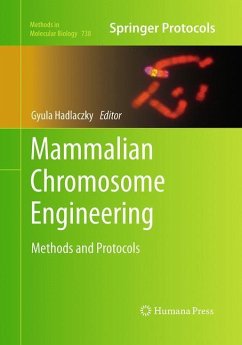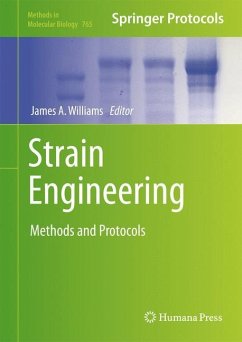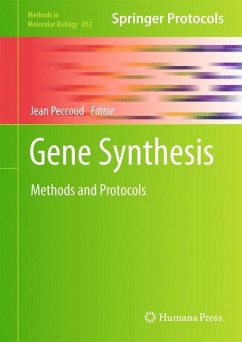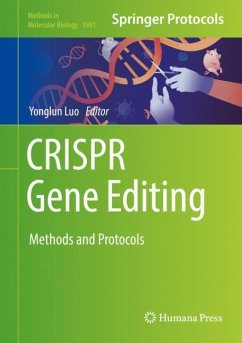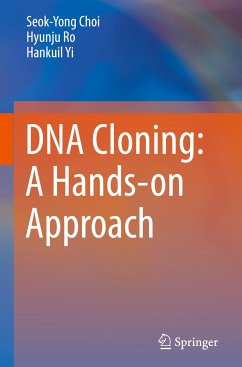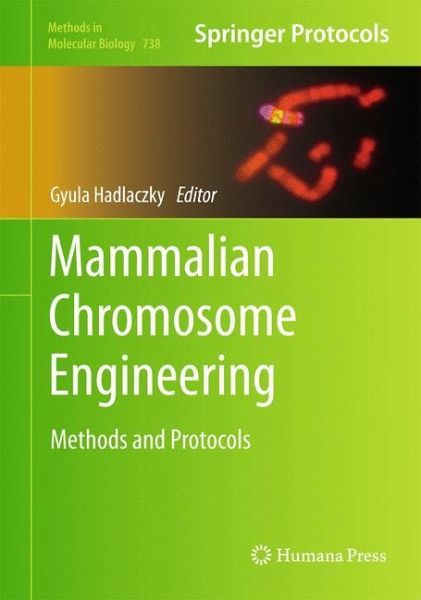
Mammalian Chromosome Engineering
Methods and Protocols
Herausgegeben: Hadlaczky, Gyula

PAYBACK Punkte
38 °P sammeln!
The rapid progression of genetics and molecular biology has turned chromosomal engineering from science fiction to reality, with the successful production of transgenic animals with engineered chromosomes and chromosomes developed for pharmaceutical protein production which are now ready for the medical industry. Mammalian Chromosome Engineering: Methods and Protocols provides the reader with up-to date information on this rapidly evolving field and strives to take the reader into the exciting realm of chromosomal engineering from the basic principles to the practical applications of these new...
The rapid progression of genetics and molecular biology has turned chromosomal engineering from science fiction to reality, with the successful production of transgenic animals with engineered chromosomes and chromosomes developed for pharmaceutical protein production which are now ready for the medical industry. Mammalian Chromosome Engineering: Methods and Protocols provides the reader with up-to date information on this rapidly evolving field and strives to take the reader into the exciting realm of chromosomal engineering from the basic principles to the practical applications of these new technologies. The five overview and ten protocol chapters cover the engineering of chromosomes with extrachromosomal vectors and transposon systems, the manipulation of naturally occurred minichromosomes, the generation and engineering of synthetic artificial chromosomes, and the induced de novo platform artificial chromosome system. Written in the highly successful Methods in Molecular Biology(TM) series format, protocols chapters contain brief introductions to their respective topics, lists of the necessary materials and reagents, step-by-step, readily reproducible laboratory protocols, and tips on troubleshooting and avoiding known pitfalls.
Authoritative and cutting-edge, Mammalian Chromosome Engineering: Methods and Protocols serves as a bench-side resource for current protocols and aims to help scientists to explore the many prospects for future research and vital applications.
Authoritative and cutting-edge, Mammalian Chromosome Engineering: Methods and Protocols serves as a bench-side resource for current protocols and aims to help scientists to explore the many prospects for future research and vital applications.





